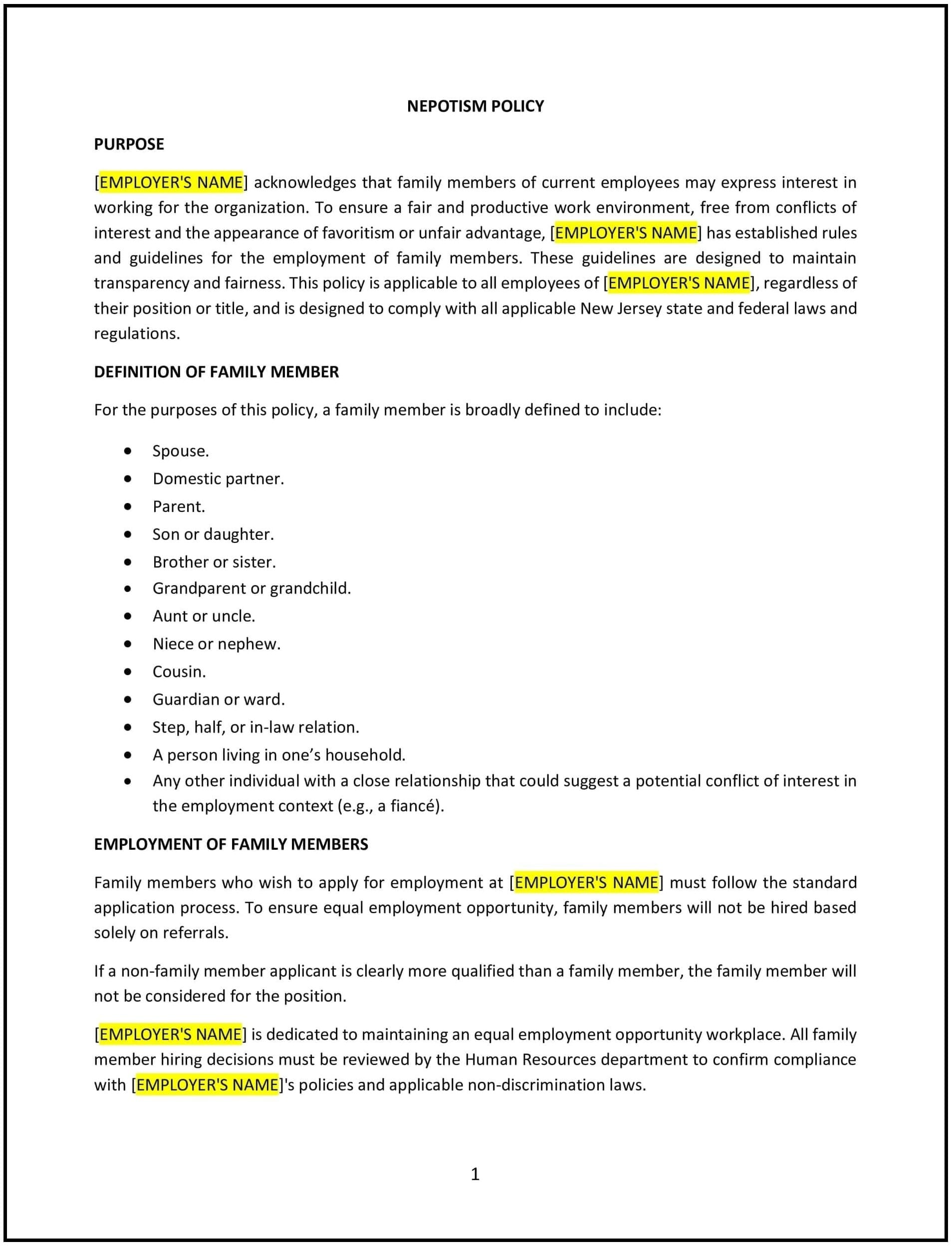Got contracts to review? While you're here for policies, let Cobrief make contract review effortless—start your free review now.

Customize this template for free
Nepotism policy (New Jersey)
A nepotism policy helps New Jersey businesses promote fairness in hiring, promotions, and workplace decision-making by preventing favoritism based on family or personal relationships. This policy outlines guidelines for hiring relatives, managing potential conflicts of interest, and ensuring that employment decisions are based on qualifications and merit. It also sets expectations for transparency and disclosure when family relationships exist in the workplace.
By adopting this policy, businesses in New Jersey can foster a professional and unbiased work environment while reducing potential conflicts and perceptions of favoritism.
How to use this nepotism policy (New Jersey)
- Define nepotism restrictions: Clarify whether family members can work in the same department, report to one another, or hold leadership positions that influence each other’s employment.
- Establish disclosure requirements: Require employees to disclose relationships with relatives or close associates who work within the business.
- Set hiring and promotion guidelines: Reinforce that all employment decisions should be based on qualifications, experience, and merit.
- Manage conflicts of interest: Outline steps to prevent conflicts, such as reassigning reporting structures or excluding related employees from decision-making processes.
- Address supervisory relationships: Prohibit direct reporting between family members or require alternative management structures.
- Establish disciplinary measures: Define consequences if employees fail to disclose relationships or engage in favoritism.
- Encourage transparency in decision-making: Ensure that hiring, promotions, and evaluations are conducted fairly and objectively.
- Review and update: Regularly assess the policy to reflect workplace needs and evolving best practices in managing nepotism concerns.
Benefits of using this nepotism policy (New Jersey)
This policy provides several benefits for New Jersey businesses:
- Promotes fairness: Helps ensure employment decisions are based on qualifications rather than personal relationships.
- Reduces conflicts of interest: Establishes clear guidelines to prevent workplace favoritism.
- Strengthens workplace integrity: Encourages transparency in hiring and management decisions.
- Improves employee morale: Creates an environment where all employees feel they have equal opportunities.
- Supports professionalism: Reinforces that workplace decisions should be based on business needs rather than personal connections.
Tips for using this nepotism policy (New Jersey)
- Communicate the policy clearly: Ensure employees understand expectations regarding family relationships in the workplace.
- Train managers on fair hiring practices: Provide guidance on making objective employment decisions.
- Encourage transparency: Require employees to disclose family relationships that may affect work assignments.
- Monitor workplace conflicts: Address any concerns about favoritism or unfair treatment promptly.
- Review the policy regularly: Update the policy based on feedback, workforce needs, and New Jersey-specific employment considerations.